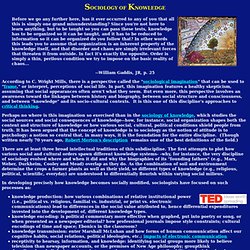

The science of love. The 3 stages of love Helen Fisher of Rutgers University in the States has proposed 3 stages of love – lust, attraction and attachment.

Each stage might be driven by different hormones and chemicals. Stage 1: Lust This is the first stage of love and is driven by the sex hormones testosterone and oestrogen – in both men and women. Serotonin And finally, serotonin. Does love change the way you think? Love needs to be blind Newly smitten lovers often idealise their partner, magnifying their virtues and explaining away their flaws says Ellen Berscheid, a leading researcher on the psychology of love. New couples also exalt the relationship itself. Stage 3: Attachment Attachment is the bond that keeps couples together long enough for them to have and raise children. Oxytocin - The cuddle hormone Oxytocin is a powerful hormone released by men and women during orgasm. It probably deepens the feelings of attachment and makes couples feel much closer to one another after they have had sex. I wrote a response to the Forbes article about my Tesla comic.
Rare neurons discovered in monkey brains. Researchers aim to assemble the tree of life for all 2 million named species. A new initiative aims to build a grand tree of life that brings together everything scientists know about how all living things are related, from the tiniest bacteria to the tallest tree.

Scientists have been building evolutionary trees for more than 150 years, ever since Charles Darwin drew the first sketches in his notebook. But despite significant progress in fleshing out the major branches of the tree of life, today there is still no central place where researchers can go to browse and download the entire tree.
"Where can you go to see their collective results in one resource? The surprising thing is you can't — at least not yet," said Dr. Karen Cranston of the National Evolutionary Synthesis Center. But now, thanks to a three-year, $5.76 million grant from the U.S. If evolutionary trees are so widely used, why has assembling them across all of life been so hard to achieve? "There's a firehose of data," said Cranston, principal investigator of the project. Monsanto maize banned in France. Scientists Afflict Computers with Schizophrenia to Better Understand the Human Brain.
May 5, 2011 AUSTIN, Texas — Computer networks that can't forget fast enough can show symptoms of a kind of virtual schizophrenia, giving researchers further clues to the inner workings of schizophrenic brains, researchers at The University of Texas at Austin and Yale University have found.

The researchers used a virtual computer model, or "neural network," to simulate the excessive release of dopamine in the brain. They found that the network recalled memories in a distinctly schizophrenic-like fashion. Their results were published in April in Biological Psychiatry. "The hypothesis is that dopamine encodes the importance — the salience — of experience," says Uli Grasemann, a graduate student in the Department of Computer Science at The University of Texas at Austin.
The neural network used by Grasemann and his adviser, Professor Risto Miikkulainen, is called DISCERN. THE SOCIOLOGY OF KNOWLEDGE. Before we go any further here, has it ever occurred to any of you that all this is simply one grand misunderstanding?

Since you're not here to learn anything, but to be taught so you can pass these tests, knowledge has to be organized so it can be taught, and it has to be reduced to information so it can be organized do you follow that? In other words this leads you to assume that organization is an inherent property of the knowledge itself, and that disorder and chaos are simply irrelevant forces that threaten it from outside.
In fact it's exactly the opposite. Order is simply a thin, perilous condition we try to impose on the basic reality of chaos... --William Gaddis, JR, p. 25 According to C. There are at least three broad intellectual traditions of this subdiscipline. In developing precisely how knowledge becomes socially modified, sociologists have focused on such processes as: How does one know what knowledge is factual in this medium, what ideas are worthy of our attention?